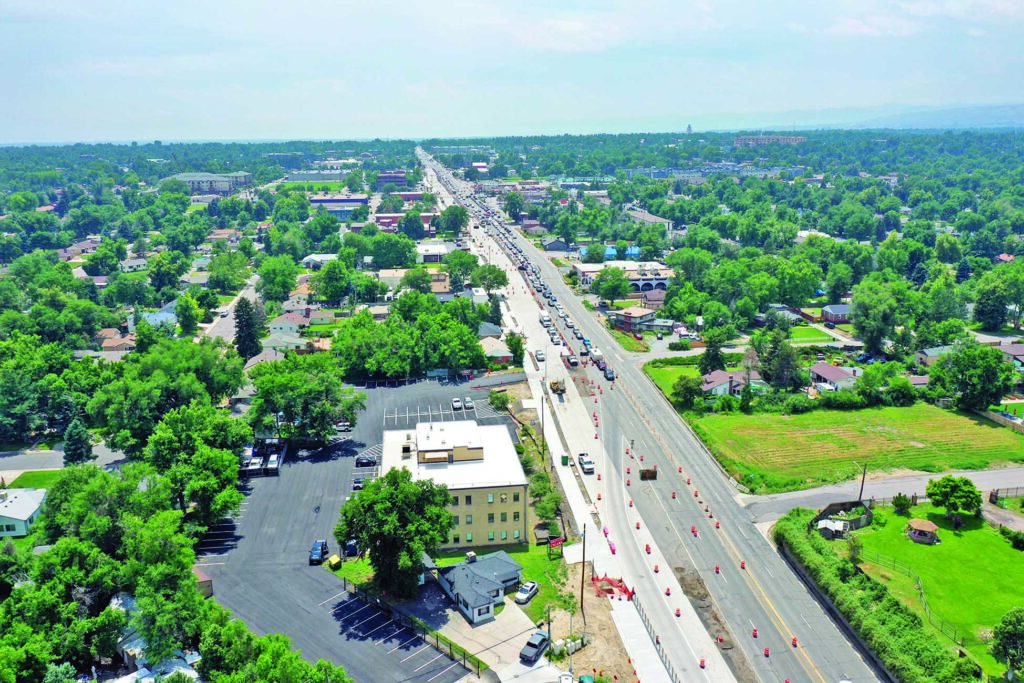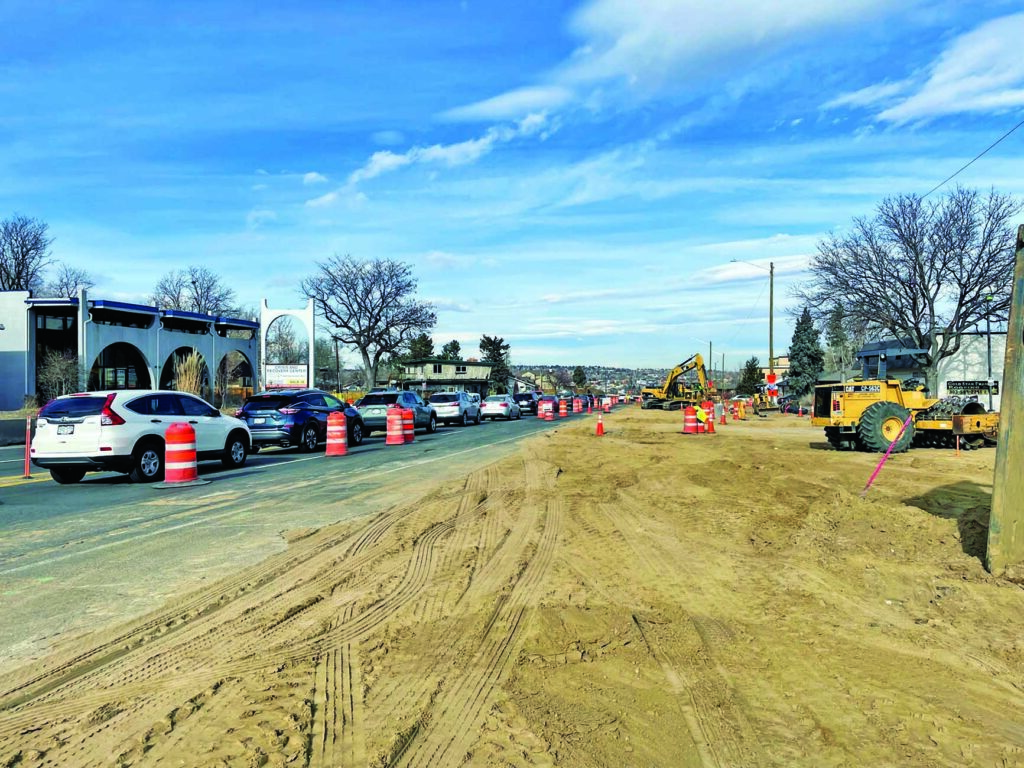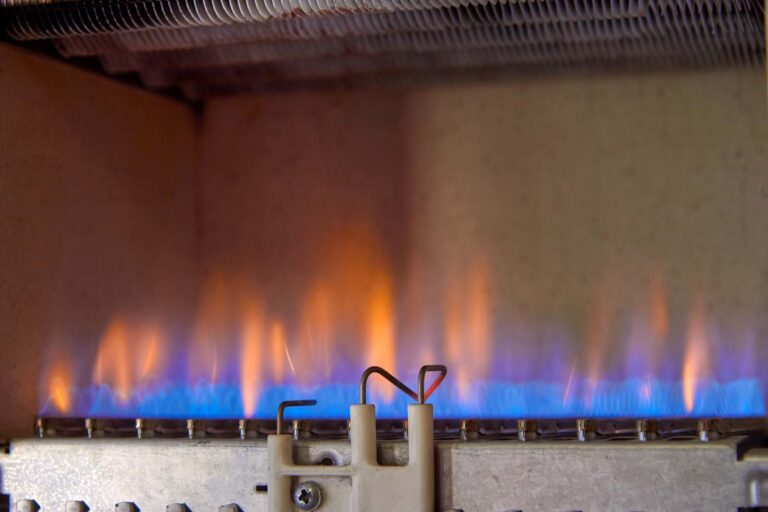Wheat Ridge motorists are right: In recent months, there have been more road projects on more streets than usual.
A combination of factors is behind the nine city projects that are producing congestion and delays and involve more than 50 streets. Added to those are three area highway projects. Altogether, the projects had an estimated cost of more than $107 billion, and are helping to raise stress levels and maybe lead to some “not-safe-for-work” words from some drivers.
Public Works Director Maria D’Andrea said the city department was short-staffed for a while, so the annual slurry seal pavement project — which included 34 streets this year — was delayed from its usual spring start to this fall.
The annual concrete mill and overlay project that involved three streets this year is larger than the last few years due to an increased budget from the City, D’Andrea added. That allowed crews to install Americans With Disabilities Act improvements, she said.
The city also repaired two streets damaged by a storm sewer collapse, an unplanned project, she noted.
“It just pushed everything together all at once,” D’Andrea said. “It was a perfect storm.”
The nine city projects that are underway as of mid-October are usually spread out to avoid the type of congestion and traffic delays motorists experienced over the last few months, D’Andrea explained. The department usually tackles between seven to ten road projects each year, so this year’s total is in line.
“It was just the timing of all of them” that led to the extra congestion and delays, D’Andrea said. “They touched a lot more people at the same time.”
Most of the complaints the department received were from commuters, D’Andrea noted.
“We always notify adjacent residents and businesses and they’ve all been understanding,” she said. “It’s mostly the people who travel throughout the city and see work going on on seemingly every street.”
The public works department oversees 133 miles of streets and 36 miles of storm sewers, manages and maintains city fleet vehicles and equipment, and administers and monitors all construction activities within street rights of way.
Most of the money for the nine city projects is part of the department’s capital improvement fund. Only the Wadsworth Boulevard widening project involved money from the city’s half-cent sales tax improvement program known as “Investing 4 the Future”, D’Andrea stated. City voters in the Nov. 7 election were asked to extend that program until revenues reach $38.5 million or Dec. 31, 2028, whichever occurs first.
Along with the city’s nine projects, three Colorado Department of Transportation projects occurred in and around Wheat Ridge.
D’Andrea noted those projects involved two of the city’s five major intersections. The city and CDOT try to work together to lessen traffic impacts, she said, but conditions didn’t allow that to the usual extent this year.
“The bridges needed work and CDOT received money to do them all at once instead of one at a time,” D’Andrea added.
“We know this has been a frustrating time for motorists,” she said. “But we know people realize the streets will be safer and it’ll be easier to get around once they’re done.”
The projects and their estimated costs are:
• Wadsworth Boulevard widening project from 35th Avenue to I-70 ($60 million)
• 52nd Avenue/Tabor Street/Ward Road intersection improvements ($7.3 million)
• Youngfield Bridge over Clear Creek rehabilitation ($550,000)
• Speed hump installation neighborhood traffic calming program on five streets ($95,000)
• Concrete curb, gutter and sidewalk repairs/pedestrian ramp installations on various streets ($500,000)
• Pedestrian improvements at 38th Avenue at Reed Street ($85,000)
• Emergency storm sewer repair replacement on two streets ($550,000)
• Annual slurry seal pavement project on 34 streets ($400,000)
• Annual mill and overlay pavement project on three streets ($2.06 million)
• CO 72 Frontage Road to Indiana Street resurfacing (CDOT, $9.3 million)
• I-70 over 32nd Avenue bridge replacement (CDOT, $9.3 million)
• I-70 and Harlan Street bridge replacement & interchange safety improvements (CDOT, $18.6 million)







